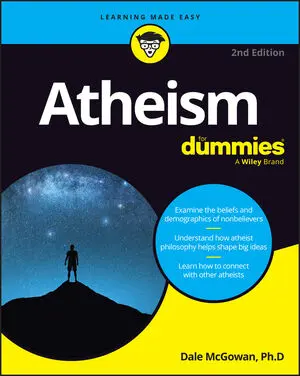A lot of people think that atheism is a recent idea. But religious disbelief actually has a long and fascinating history. Just as a student of Christianity would want to know about a few rather significant things that happened 2,000 years ago, someone who wants a better understanding of atheism likewise needs to know what atheism has been up to for the past 30 centuries or so.
Atheism in the distant past and in different cultures
People tend to think of certain times and places as completely uniform in their beliefs. India is full to the brim with Hindus. The Greeks all worshipped the gods of Olympus. Everyone in Medieval Europe was Christian. Right?
A closer look shows all of these claims to be misleading. Just as political “red states” (Republicans) and “blue states” (Democrats) in the United States are really all various shades of purple, every place and time in human history includes a lot of different beliefs — including atheism.
That’s not to say all points of view have the same chance to speak into the cultural microphone. Religion in general and the majority religion in particular tend to call the shots and write the histories, especially prior to the late 18th century.
Add to that the fact that atheism has often been punishable by imprisonment or death, and you can see why atheists in certain times and places tend to whisper.
But the voices are there, including some in the distant past and in cultures both in and out of Europe. The thread of atheism in the ancient and medieval world is a story that very few people know. Even atheists are usually in the dark about this part of their history.
Atheism and the Enlightenment
By the early 18th century, disbelief was gathering serious steam in Europe. Secret documents challenging religious belief had been circulating for 50 years, just steps ahead of the censors. French parishioners going through the papers of their Catholic priest who died in 1729 found copies of a book, written by the priest for them, telling how much he detested and disbelieved the religion he’d taught them for 40 years.
By the end of the century, philosophers in France, Germany, and England were openly challenging religious power and ideas and establishing modern concepts of human rights and individual liberty.
It all culminated, for better and worse, in the French Revolution, when a brief flirtation with an atheist state was followed by the Cult of the Supreme Being and the Reign of Terror — at which point atheism went back underground for a bit.
Atheism in the 19th century
The idea that God didn’t really exist never completely went away, even when someone like Napoleon shut it down for a while. It was always bubbling under the surface and occasionally shooting out sideways through someone who just couldn’t stand to keep it quiet.
The poet Percy Shelley proved to be one such person, getting himself kicked out of Oxford in 1811 for expressing an atheist opinion. Then the early feminists of England and the United States made it plenty clear that they considered religion to be a stumbling block in the way of women’s rights.
Science really put the wind in the sails of atheism in the 19th century. By paying close attention to the natural world, Darwin turned himself from a minister in training to an agnostic and solved the complexity problem that prevented so many people from letting go of God.
As the biologist Richard Dawkins once said, atheism might have been possible before Darwin, but Darwin made it possible to be an “intellectually fulfilled atheist.” But a flurry of activity after Darwin’s death tried to hide his loss of faith, including some selective slicing and dicing of his autobiography and a false deathbed conversion story dreamt up by a British evangelist with little respect for the Ninth Commandment.
In Darwin’s wake, a golden age of freethought opened up in the United States and the United Kingdom.
Atheism in the 20th century
Atheism also doesn’t guarantee good behavior any more than religion does, and “Absolute power corrupts absolutely” becomes a tragically apt phrase in the 20th century.
There are plenty of examples of corruption and immorality in positions of unchecked power, both by atheists (such as Mao Zedong in China, Joseph Stalin in the USSR, and Pol Pot in Cambodia) and theists (such as Adolf Hitler in Germany, Francisco Franco in Spain, and Idi Amin in Uganda).
But there’s also good news, including the growth of humanism as a movement and court victories for the separation of church and state — something that benefits both the church and the state.
The 20th century also saw one of the most fascinating developments in the history of religion as two God-optional religions formed and flourished: Unitarian Universalism and Humanistic Judaism.





